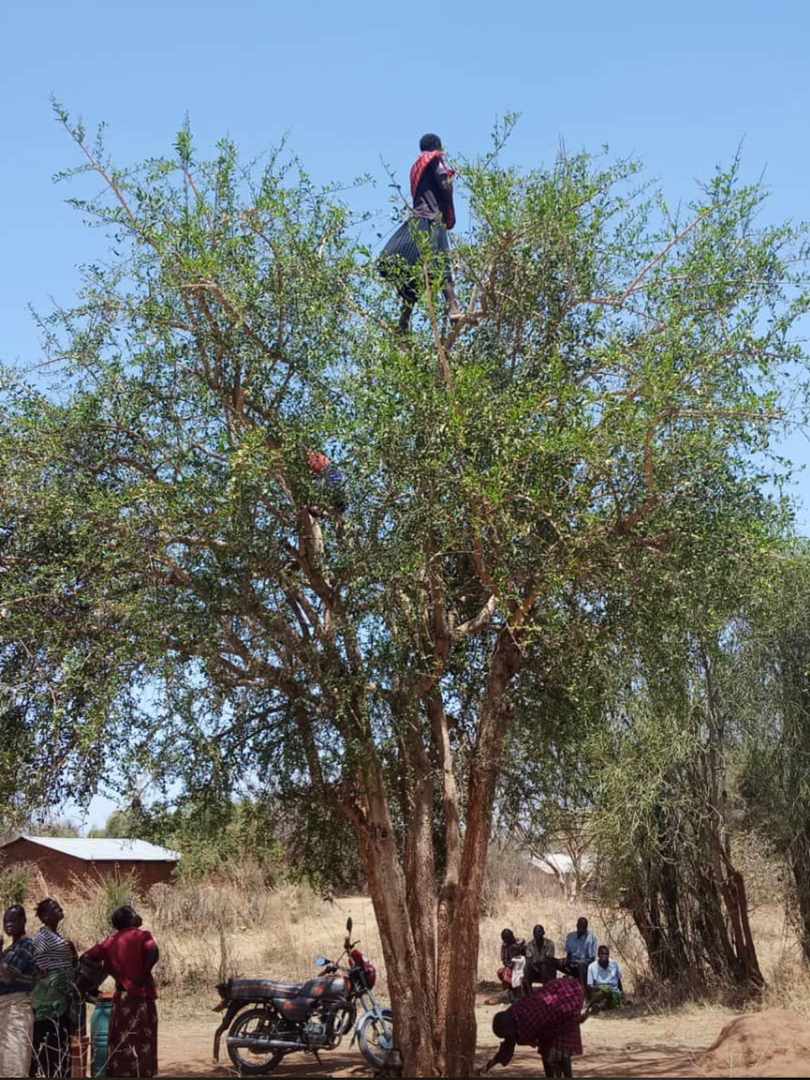Her day begins at 5:30 am. She picks up her naked baby, places him on her back, and rushes to the nearest borehole or spring, water not less than three kilometers away. When back from the water collection, she hopes that the wood she lit to get charcoal in the wilderness the night before is finally ready for the market.
In the dry forest like now, ignoring the cloud of smoke still coming out of the heap, she gathers the small pieces of wood that never burnt and ties them in a bundle. As she goes ahead gathering more grass to mend the rooftop of her house later that day.
Once set with her child strapped on her back and charcoal on her head, Grace Angolere makes for the trading center 17 kilometers away to earn the family’s bread.
On a good day’s sale, the burnt charcoal gets her Shs10,000 to 17,000, some of which she uses to buy half a kilogram of beans, half a kilogram of posho, and a “tot” of paraffin. She uses a little to buy tobacco for snuffing and then gives her husband the rest for his local brew.
With the day gone trying to fend for the family, she has but one prayer; that he doesn’t get very drunk and beat her up that night.
In a society where women fend for their families, nothing seems more natural than Angolere’s day. And the pastoral nature of Karamoja and Turkana has handed over women the responsibility to cater for the basic and essential needs of the family while men take to raids and security matters.
The Karimojong men, therefore, save their energy all day long, relaxing under trees, as they prepare to go for cultural raids and safeguard the homesteads from external attacks from their counterparts in Kenya, the Turkana, and internally from neighboring hostile clans among the Karimojong.
Ms. Joyce Nasike, a local of Karamoja, said they are used to the way they live. “Once you’re born a woman and get married here, you take on the responsibility of taking care of your family,” She said.
“It’s not a surprise to us because it’s in our minds, to wake up early in the morning with an axe, trek into the bushes, cut down trees for charcoal, burn so that we sell and get something to feed our families, as our husbands too get busy with looking after our livestock,” she said, adding, “that is what our culture says and that is how we have been brought up.”
Maria Nachugae, a mother of five, admits that no woman in Karamoja can complain of being overloaded with work because they are used to it.
“We play our role as our mothers did. In fact, we are used to this although women from other regions keep wondering about the way we live,” she notes.
Nachugae reveals that many women in Karamoja survive on one meal a day and the wild fruits they gather from the bush for breakfast. While she is resigned to their lifestyle, like other Karimojong women, Nachugae still hopes that gender roles will change and education, water, and climatic conditions will be improved to change their lives and standard of living.




















